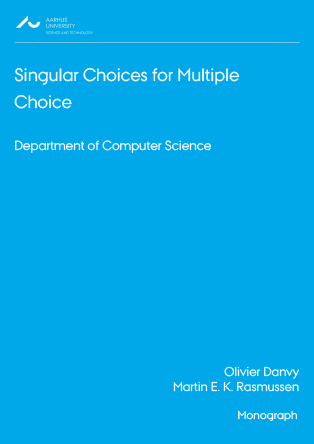Singular Choices for Multiple Choice
Synopsis
We revisit and evolve Frandsen and Schwartzbach's axiomatic scoring strategy for multiple-choice exams that credits partial knowledge and levels out guessing.
The evolved scoring strategy equalizes the implicit weight of each question by default and makes this weight an optional parameter for each question.
Partial credit can also be modulated, which provides a measure of the spread of knowledge of the examinee.
Based on a decade of experience in a first-year university course, we find the evolved exams to be more understandable and predictible both for the examiner and for the examinees.
Finally, we present a family of scoring functions that fit the model.

